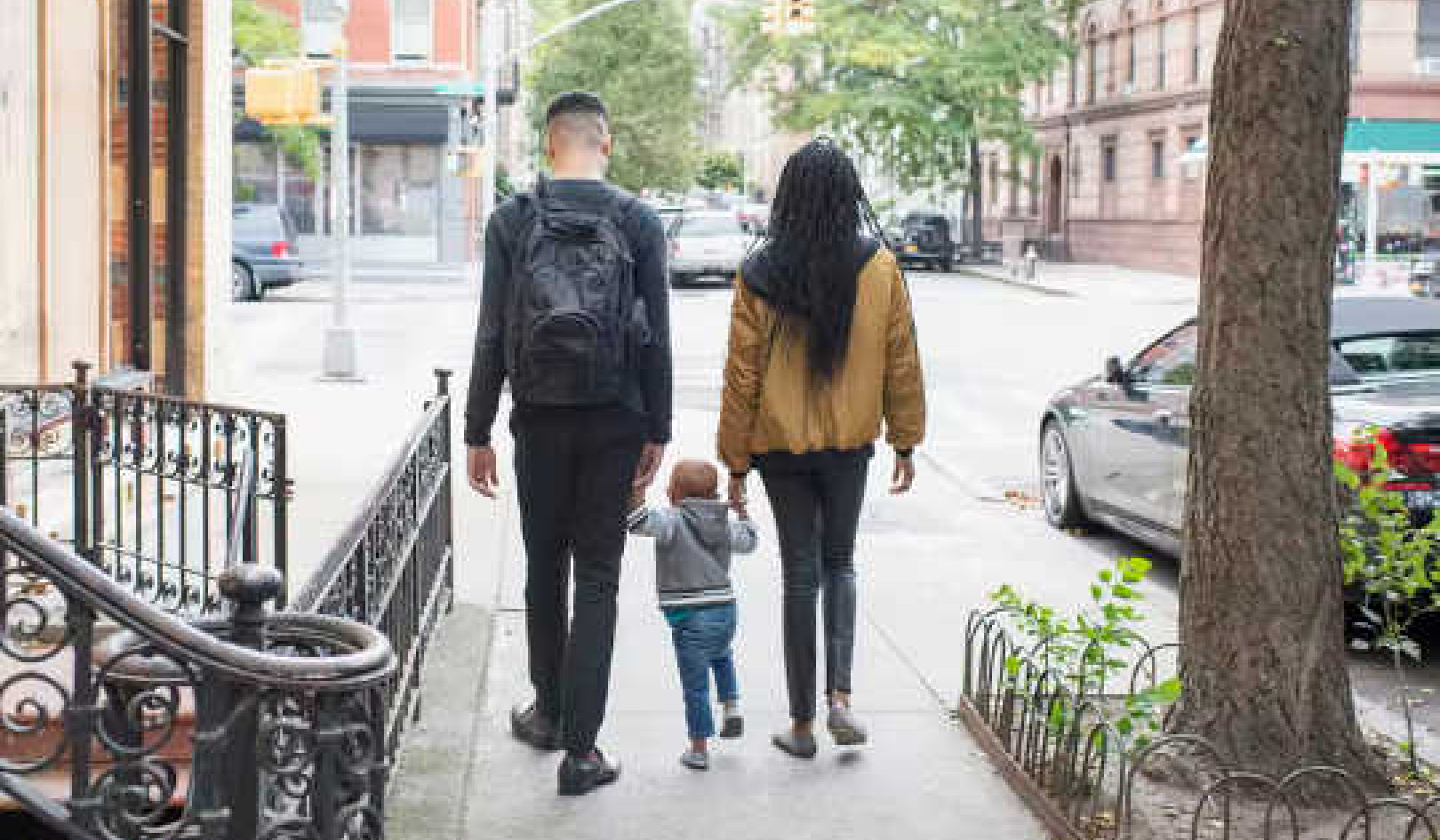
By sharing what we already have (time, energy, money, goods, foods, skills) we can create communities of abundance. By changing our idea of what it means to be sustainable people, families, and businesses, and working together to achieve it instead of alone in our own silos of eco-guilt, we will rediscover our commonalities, our connections, our passions.
We are the change we’ve been waiting for. Movements like Occupy Wall Street and Idle No More show that we’re ready for a shift away from the false power of things and toward the galvanizing power of people. Sustainability, efficiency, and happiness will emerge as by-products, and our communities will become cleaner, happier places to live.
Building a Sharing Economy
The suggestion that we throw out this consumption-obsessed system and build a new society that values open access, experience, and social responsibility is more than a little daunting. Lots of us are tired. We’re tired of the bad news that floods the airwaves, tired of broken promises and leaders who don’t lead. We’re tired of being told “that’s just the way it is” when profit takes precedence over people and planet.
In fact, sometimes it feels like it would just be easier to give up, to stop trying to make a difference and just go with the flow. Yes, building a sharing economy will take work, hard work. That’s why it’s important to acknowledge all that we stand to gain by embarking on this new journey together.
Sharing Bolsters the Local Economy
Sharing, even on a very small scale, makes a big impact on the people and places involved. It gets neighbors talking and trusting each other again. Skillshares, timebanks, and cooperatives keep money, resources, and talents focused in the community where they’re needed. Crowdfunding provides businesses that are circling the drain with a way to get back on their feet, free from the predatory practices of banks or investors. Co-working, business incubators, and maker collectives offer support for thinkers and creators, encouraging others to follow the same entrepreneurial path.
Swapping and bartering reduces waste, halts mindless consumption, and retrains individuals to extend the lifecycle of things they already have in creative ways. On the individual level, it can be a shortcut to financial responsibility, helping people to see that they don’t have to sacrifice comfort for efficiency. Collaborative consumption makes it possible for every one to live a simpler, healthier, low-impact lifestyle regardless of the amount of cash they have on hand, and that’s good news in a time when cash is hard for many to come by.
Sharing Encourages Community Involvement
Sharing can’t exist without a community. But community doesn’t have to be based on physical proximity or even geographical proximity. Communities can also be built around an idea, a behavior, an interest, a need, or even basic similarities like age, illness, or sport team allegiance. The most successful sharing comes from communities that have common ideals, values, and goals. Because of this emphasis on a shared destiny, collaborative consumption has inherent benefits for local economies.
In order to share, people must have an understanding about what they want and what they are capable of giving. When people agree to share instead of buy, they invest in each other. Instead of viewing friends, neighbors, or online acquaintances as annoyances or competition, we begin to view each other as assets and resources. This forms a web of pleasant interdependence that acts as a support system, and cuts out the “middleman” position usually occupied by business or government. Instead of supporting companies that only siphon money out of the community, collaborative consumption helps keep money and other resources circulating within the community.
When a community is connected and open to sharing, people save money, learn new skills, and reduce their impact on the environment. New ideas emerge, and problems are solved in creative ways.
Sharing Encourages Self-Sufficient Behavior and Accountability
 The sharing economy harnesses the power of we — the power of a community to come together, identify a need, and crowdsource a solution. In some cases, that solution is as simple as lending a tool or bartering some food. Sometimes it’s crowdfunding the money needed to put a new roof on a church or help a local band produce their first album. It might mean getting involved with local politics to demand a community government that’s transparent, efficient, and focused on the well-being of the individuals that make up that community.
The sharing economy harnesses the power of we — the power of a community to come together, identify a need, and crowdsource a solution. In some cases, that solution is as simple as lending a tool or bartering some food. Sometimes it’s crowdfunding the money needed to put a new roof on a church or help a local band produce their first album. It might mean getting involved with local politics to demand a community government that’s transparent, efficient, and focused on the well-being of the individuals that make up that community.
People who share naturally seek out others who share. Because sharing is about mutual support and collaboration, sharers want to patronize local businesses that make sharing simpler, cheaper, or safer.
Sharing Encourages Innovation and Entrepreneurship
Collaborative consumption isn’t only about the sharing of tangible things. People can also share space, time, skills, data, and access to technology. In fact, these types of sharing are in many ways more impactful than more traditional methods, like clothes swapping or cooperative food growing.
Those who have struck out on their own professional career path often find that self-employment and business ownership can be a lonely road. Isolation breeds fear, worry, and stagnation — all enemies of productivity and success. On the other hand, connection to a supportive community breeds innovation, creativity, and collaboration.
Coworking is one of the fastest-growing elements of the sharing economy. Coworking spaces are shared, collaborative office spaces that cater to the mobile workforce. More than fast Internet connections and comfortable desks, coworking spaces offer entrepreneurs an open, accessible community that facilitates collaboration between like-minded — or even not so like-minded — professionals.
Countless new startup companies have sprouted from the networks and friendships that occur in coworking spaces. Access to high-quality and often free feedback from a diverse group of innovators can help entrepreneurs who cowork bring their products and services to market faster and be better prepared for some of the challenges of business ownership. New statistics show that freelance and self-employed workers make up one of the fastest-growing segments of the workforce. When they flourish, the local economy benefits, and the whole happy cycle starts all over again.
Sharing Grants Access to Under-Served Populations
Entrepreneurs or non-profit innovators who might otherwise not have access to the support or affordable space necessary to realize their ideas are well served by coworking spaces. Individuals, especially children, who might not otherwise have access to books (electronic or otherwise), periodicals, computers, the Internet, or computer training can get it cost-free at libraries. Conversely, when owners of outdated or unneeded technologies choose to rent, swap, or sell them via redistribution outlets like eBay, Craigslist, or Swap .com, those for whom high costs were a prohibitive barrier are given a chance to keep up with technological advancements.
Lending libraries, typically neighborhood-level cooperatives, give people access to tools, equipment, and accessories that would be too expensive to purchase for just one project or new hobby. Instead, groups of individuals come together to create a single standing collection that can be borrowed by anyone for an hour, a day, or a week.
Sharing Reduces Waste
Waste is reduced because families no longer feel the need to buy their own hedge trimmer, or ladder, which might otherwise sit unused for 364 days out of the year. Retired craftspeople get a place to donate their tools and see them put to good use. Often knowledge and friendship is also exchanged between lenders and borrowers in addition to the physical tool. Enthusiasm about repairing and repurposing grows, encouraging greater self-sufficiency and less waste.
Peer-to-peer clothing swaps prevent textile waste and help families stay well-clothed at no expense. Although most clothing swaps take place on the local level, there’s evidence that the concept scales up well. There are dozens of Web-based services that will allow you to give or rent clothing and accessories to others who need them. Don’t want to buy a gown for a one-time event or a new pair of shoes for a job interview? Renting and swapping keeps these items in use and provides access to what could be life-changing clothing for little to no cost.
Sharing Enhances Relationships and Increases Knowledge
Throughout this running list of examples, we’ve seen that relationships and knowledge are often unexpected by-products of a sharing community. It’s hard to borrow someone’s lawn mower or gardening tools without striking up a conversation. New skills, like designing a website or knitting a scarf, are passed between community members who might otherwise never have struck up a conversation.
In some cases, the acquisition of these skills can lead to new work or volunteering opportunities, improving quality of life. In others, it simply provides a new hobby, opening the door to new friends and providing welcome opportunities for relaxation. Skill sharing is also cyclical; those who learn a new skill can pass the same skill on to someone else.
Sharing Protects the Environment
When individuals embrace sharing as a way to access resources and support others in the community, pride, citizenship, and collaborative innovation are never far behind. Along the way, waste is dramatically reduced and lifestyles typically burdened with heavy carbon footprints suddenly become more environmentally friendly, even though quality of life is the same. Many, myself included, feel guilty because they can’t afford an electric car or rooftop solar panels, but simply participating in the sharing economy is one of the most sustainable decisions any one of us can make.
©2013 by Beth Buczynski. All Rights Reserved.
Reprinted with permission of the publisher,
New Society Publishers. http://newsociety.com
Article Source
Sharing is Good: How to Save Money, Time and Resources through Collaborative Consumption
by Beth Buczynski.
 Society is at a crossroads. We can either continue on the path of consumption at any cost, or we can make new choices that will lead to a happier, more rewarding life, while helping to preserve the planet for future generations. Collaborative consumption is a new way of living, in which access is valued over ownership, experience is valued over material possessions, and "mine" becomes "ours," and everyone's needs are met without waste. Sharing is Good is your road map to this emerging economic paradigm.
Society is at a crossroads. We can either continue on the path of consumption at any cost, or we can make new choices that will lead to a happier, more rewarding life, while helping to preserve the planet for future generations. Collaborative consumption is a new way of living, in which access is valued over ownership, experience is valued over material possessions, and "mine" becomes "ours," and everyone's needs are met without waste. Sharing is Good is your road map to this emerging economic paradigm.
Click here for more info and/or to order this book on Amazon.
About the Author
 Beth Buczynski is a freelance writer and editor who covers clean technology, sustainable design and environmental issues for some of the most popular green sites on the web. The coauthor of two popular ebooks on coworking, Beth believes that building a new economy based on sharing and community is key to ending our dangerous obsession with consumer culture and creating greater social equality. A regular contributor to Care2.com, Inhabitat.com, and Shareable Magazine (shareable.net), and Green Living editor at EarthTechling.com, Beth has been named one of the top 75 Environmentalists to Follow on Twitter by Mashable.com, and one of the Top 3 Green Twitterati by At Home magazine.
Beth Buczynski is a freelance writer and editor who covers clean technology, sustainable design and environmental issues for some of the most popular green sites on the web. The coauthor of two popular ebooks on coworking, Beth believes that building a new economy based on sharing and community is key to ending our dangerous obsession with consumer culture and creating greater social equality. A regular contributor to Care2.com, Inhabitat.com, and Shareable Magazine (shareable.net), and Green Living editor at EarthTechling.com, Beth has been named one of the top 75 Environmentalists to Follow on Twitter by Mashable.com, and one of the Top 3 Green Twitterati by At Home magazine.
























